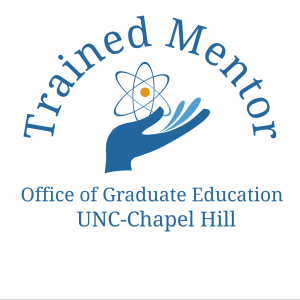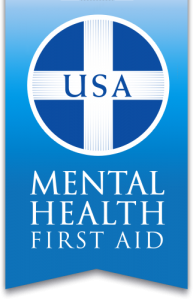Faculty Training
Mentoring students is the primary responsibility of faculty preceptors. There are many resources available to help faculty learn and incorporate effective practices in their mentoring, and we encourage faculty to participate in the many training opportunities offered. Some of the trainings are detailed below.
OGE Faculty Mentoring

The Office of Graduate Education in the School of Medicine holds a Mentoring Workshop each semester, modeled on the Entering Mentoring program developed at the University of Wisconsin. Topics include: Effective Communication; Aligning Expectations; Assessing Understanding; Fostering Independence; Self-Efficacy; Professional Development; Addressing Equity and Inclusion; Articulating Your Mentoring Philosophy. Even though this training program is targeted for biomedical researchers, we do encourage all faculty to sign up for a session.
Diversity, Equity, and Inclusion Certificate

The UNC Office of Inclusive Excellence offers Diversity, Equity, and Inclusion training. Faculty who participate in both Unconscious Bias training and Respecting All training receive a DEI certificate. Workshops on additional topics are also offered regularly.
Safe Zone Training

The UNC LGBTQ Center offers Safe Zone training. The Standard Safe Zone is a four-hour training is designed to introduce concepts, terminology and resources related to sexual orientation, gender identity, and gender expression. Participants develop a deeper awareness of personal ideas, stereotypes, and assumptions related to gay, lesbian, bisexual, transgender, intersex, queer and asexual (LGBTIQA) individuals; an increased comfort level in addressing concepts and language regarding LGBTIQA communities; an increased awareness of campus support services; and a network of community. Standard Safe Zone is a prerequisite for the two-hour Safe Zone Continuing Education trainings (e.g.,Transgender and Nonbinary; Intersex).
Mental Health First Aid Training

UNC’s School of Social Work offers Mental Health First Aid Training, usually once each semester, but also by request for specific departments and units. Mental Health First Aid is an 8-hour training that will give students, staff, and faculty the skills to help someone who is developing a mental health problem or experiencing a mental health crisis. Just as CPR training helps a layperson without medical training assist an individual following a heart attack, Mental Health First Aid training helps a layperson assist someone experiencing a mental health crisis.
Culturally Aware Mentorship Initiative

The National Resource Mentoring Network offers evidence-based training for mentors of research trainees in STEMM disciplines at different career stages, including undergraduate and graduate students, postdoctoral fellows, and junior faculty. The training is designed to help mentors develop skills for engaging in productive, culturally responsive, research mentoring relationships — relationships that optimize the success of both mentors and mentees. Included in the trainings is a Culturally Aware Mentorship Training.
The NRMN Culturally Aware Mentorship (CAM) initiative is an innovative effort to enhance mentors’ and trainees’ ability to effectively address cultural diversity matters in their research mentoring relationships. The CAM initiative and approach are supported by evidence which indicates that broader participation of culturally diverse groups enhances the quality of research and practice in the biomedical, behavioral, and clinical sciences.